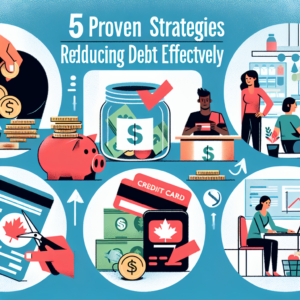In today’s fast-paced world, managing finances can often become a daunting task, especially when confronted with late bills. Failure to pay bills on time can lead to a multitude of problems, including late fees, damaged credit scores, and increased stress. However, with the support of the Credit and Debt Recovery Alliance (CDRA), individuals and businesses can implement effective strategies to tackle these issues head-on. This article outlines some effective strategies to manage late bills with CDRA support, as well as ways to maximize financial stability through debt recovery assistance.
Effective Strategies to Manage Late Bills with CDRA Support
One of the most effective strategies for managing late bills is to prioritize payments based on due dates and consequences. By listing all upcoming bills and categorizing them based on urgency, individuals can effectively allocate their resources. Utilizing CDRA’s resources, such as budgeting tools and financial counseling, can help individuals make informed decisions about which bills to pay first. This structured approach not only prevents late fees but also aids in maintaining a positive relationship with creditors.
Additionally, open communication with creditors is crucial. When facing difficulties in meeting payment deadlines, reaching out to creditors to discuss payment options can often lead to more favorable outcomes. Many creditors are willing to negotiate payment plans or deferments in light of financial hardship. The CDRA can provide guidance on how to effectively communicate with creditors, ensuring that individuals can advocate for their needs without jeopardizing their credit score or financial standing.
Lastly, leveraging technology can greatly assist in managing bills. Utilizing apps or financial management software can help individuals stay organized, send reminders for upcoming due dates, and even track their expenses. The CDRA endorses various digital solutions that can streamline financial management, providing users with insights into their spending patterns and encouraging proactive debt management. By integrating these tools into their financial routines, individuals can reduce the likelihood of late payments and enhance their overall financial health.
Maximizing Financial Stability through Debt Recovery Assistance
Debt recovery assistance is a vital resource for individuals struggling with outstanding bills. The CDRA offers various forms of support, including negotiation services and financial education. By working with a CDRA representative, individuals can learn how to effectively manage their debts and explore options for debt relief. This guidance can help individuals make informed decisions on how to tackle their outstanding bills in a way that aligns with their financial goals.
Moreover, the CDRA provides resources and workshops that focus on budgeting and financial literacy. By participating in these programs, individuals can develop essential skills for managing their finances, such as creating a balanced budget, understanding credit scores, and identifying savings opportunities. Gaining this knowledge is instrumental in preventing future late bills and fostering long-term financial stability. Education is a crucial step towards empowerment, allowing individuals to take control of their financial situations.
Furthermore, building a supportive network is important for sustaining financial well-being. Engaging with community resources or financial support groups can provide individuals with the encouragement and accountability needed to stay on track with their payments. The CDRA often collaborates with various organizations to create a comprehensive support system for those facing financial challenges. By fostering connections with others who share similar experiences, individuals can find motivation and practical strategies to manage their debts effectively.
In conclusion, managing late bills can be challenging, but with the support of the Credit and Debt Recovery Alliance, individuals can adopt effective strategies to regain control over their finances. By prioritizing payments, communicating openly with creditors, and utilizing technology, individuals can effectively navigate their financial challenges. Additionally, maximizing financial stability through debt recovery assistance, budgeting education, and community support can empower individuals to secure a brighter financial future. Embracing these strategies can not only alleviate the stress of late bills but also pave the way for a more stable and prosperous economic life.



